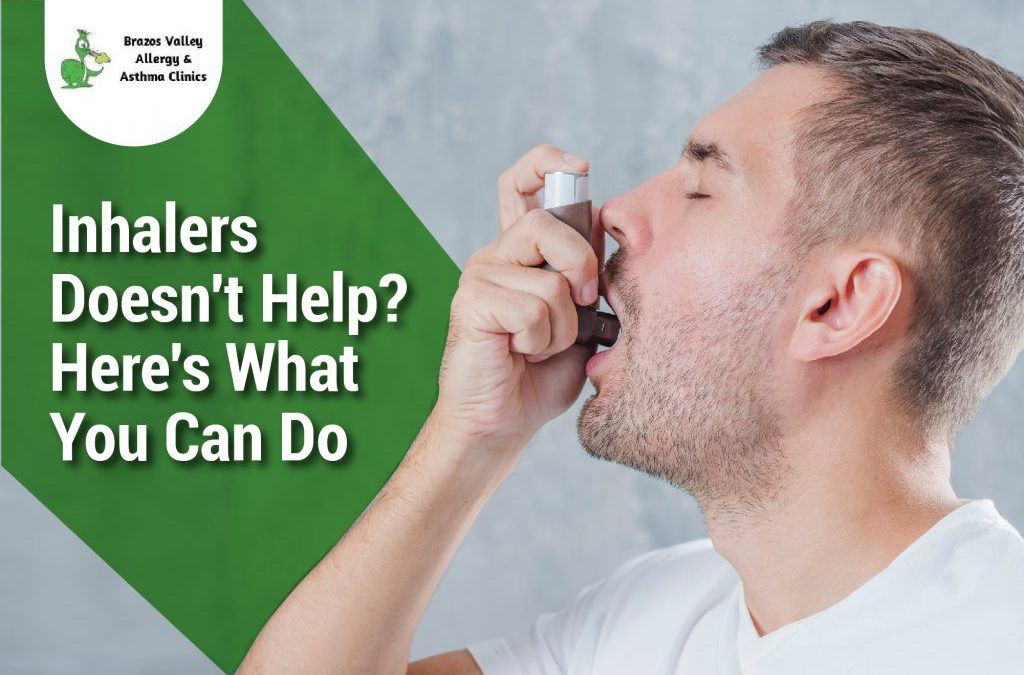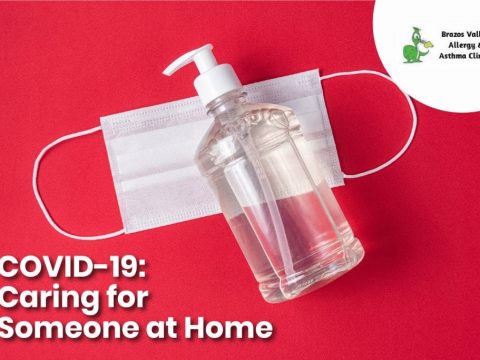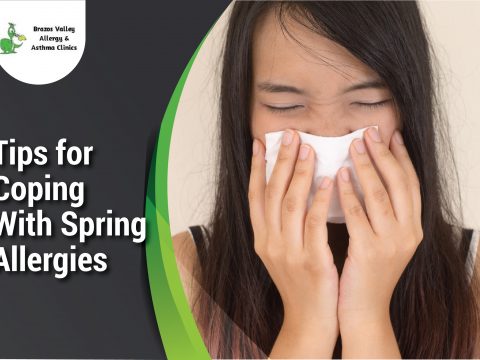- 979-485-9287
- office@bvallergy.com
-
 979-251-7804
979-251-7804
Inhalers Doesn’t Help? Here’s What You Can Do

This Year Is Your Most Important Flu Shot
October 16, 2020
Ways to Prepare Yourself for Winter Allergies
November 18, 2020Things to Do If You Don’t Have an Inhaler
Asthma is a chronic condition that affects the lungs. During an asthma attack, the airways become narrower, which makes it difficult to breathe. Most people with the condition don’t want to be caught without an inhaler during an asthma attack. The preferred way of treating asthma is by using an inhaler that contains medication that expands your airways.
But what if you’re having an asthma attack and you don’t have your inhaler? What can you do? There are several things you can do while you wait for the symptoms to subside or for medical help to arrive:
Stay calm.
Strong emotions can make asthma symptoms worse. Don’t panic. Anxiety tightens your chest and back muscles, which makes it more difficult to breathe. Just as in any other kind of emergency situation, the key to survival lies in thinking clearly.
Sit in an upright position.
Sit down and loosen any tight clothing. Sitting up straight will help open the airways, making it easier for air to move through the lungs. Make sure you don’t bend over or lie down, as doing this can make your symptoms worse and constricts your airway even more.
Take long, deep breaths.
Special breathing techniques can help your lungs work better. During asthma attacks, breathe in through your nose and through your mouth. This helps slow down your breathing and prevent hyperventilation. Learning some breathing exercises and practicing them regularly may help you gain more control over your asthma symptoms. Before trying any breathing exercises, it is important to consult your doctor first.
Get away from the trigger.
If you feel that an asthma attack is imminent, you need to stop what you’re doing and move away from anything that could make your attack worse. If you can get away from your trigger, do so. If you think something outside is causing your symptoms, then move into clean air, preferably an air-conditioned environment. Try to take slow, deep breaths once you’re in a safe place. If you got exposed to an allergen, take a shower and wash it off your skin.
Drink a warm, caffeinated beverage, such as coffee or tea.
If your symptoms are mild, drinking a cup of coffee may alleviate your asthma symptoms. Caffeine has similar properties to some asthma medications and can help temporarily improve airway functions. More research is needed, but there are some studies suggesting that it may help the lungs work better for up to 4 hours.
Get medical help.
If you can’t get the wheezing, coughing, or breathing difficulties under control, it’s important to get help. Even if you’ve managed to regain a measure of control, the only way to effectively treat an asthma attack is with medication.
Brazos Valley Allergy & Asthma Clinics is located in the south-central Texas region and provides professional allergy, asthma, and immunology services to clients at numerous locations in the Brazos Valley region. They will help you develop a treatment plan to help you manage your allergy symptoms. Schedule a consultation to learn.




